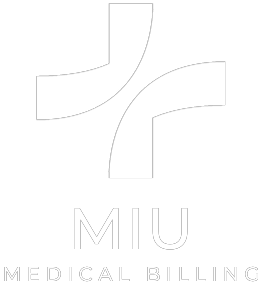Introduction
When it comes to getting a medical bill out of the blue, everyone will agree that it is one of the most frustrating things, especially when you are being billed or charged for something you never got. Surprisingly, typical mistakes in billing and subsequent disagreements are more comprehensive than long-standing healthcare systems where the patient remains responsible for correcting the medical bill. It can be very challenging to file counterclaims to these charges; however, when done right, it can save you a lot of money that should not be charged for services not received by the other party as billed.
Understanding Medical Billing Errors
As it will be seen next, many codes, charges, and abbreviations on a medical bill may need to be revised for most patients. These include mistakes that may arise during data entry, the broad classification of codes into payables and receivables, and misunderstandings between healthcare providers and insurance companies. Some common errors that may result in inaccurate medical bills include: Some common medical billing errors are:
- Each service or procedure a patient receives may cost them more than once, which is unfair to the patient.
- Healthcare billing: In health care, providers use specific coded numbers to describe the service they offer. If they provide the wrong code, the patient will be billed the incorrect amount.
- Only some medical facilities may “unbundle” services, which means that instead of a patient being charged for one service that includes several minor services, the patient pays for each minor service separately, thus being overcharged.
- Unnecessary services: Sometimes, patients are billed for services or procedures they have yet to receive. This means that an error has occurred and needs to be corrected.
Disputing a Medical Bill for Services Not Rendered
Sometimes, when you go through the list of hospital billing statements, there are some services you never received, which is good for you to challenge those charges. Here are the steps you can follow:
- Recheck Your Bill: You should go through your bill from the first line to the last to ensure no charges are made for services and procedures you did not receive or request. This is the total sum of the Specific Charges with their respective codes and descriptions on the form.
- Gather Supporting Documentation: Acquire documents that will give evidence of the receipt of the services that you allege you have never been served with. This may involve your health information, treatment, payment for medical services, personal appointments, and communication with providers.
- Contact the Medical Provider: If you want to discuss the bill with someone in the medical field, you should contact the medical provider or the facility responsible for resolving medical billing errors. This should involve a brief discussion of the accuser’s allegations and the accompanying evidence you have gathered that refutes the charges made against you.
- Further Communication: In writing, send another letter or email to the medical provider after making your first direct contact. Clearly state your disagreement with the charges incurred, briefly explain your side of the story, and attach copies of any supporting documents to your communication. Please make sure a copy of this correspondence is accessible to you.
- Take the Dispute to the Next Level: If the medical provider is indifferent to your situation or has not addressed the matter appropriately in their response, you have to let it go to another level. This may mean writing to the billing department’s manager, the patient advocate’s office of the hospital, or even going to the local medical board or the office of your state consumer protection bureau.
- For Statement: If the response is unsatisfactory, the reader needs more clarification, or does not understand the charges, s/he can ask for an itemized bill showing a detailed list of each service and corresponding charges.
- Assert Your Rights Over Your Insurance Provider: If you are an insurance client, report your case to the insurance company and share all relevant information. Sometimes, they can help solve the problem, or some suggest the following steps.
Preventing Future Medical Billing Errors
While disputing medical billing errors can be a time-consuming process, there are steps you can take to help prevent similar issues in the future:
- Review Medical Bills Immediately: Always ensure that you go through them with a lot of caution as soon as you are presented with them. The best way to challenge any discrepancies that you might find when using electronic records as evidence is to identify these errors early enough.
- Record Keeping: Keep proper records of all the medical appointments, procedures, and services that were obtained. Challenging the incorrect charges that may be leveled against you can also be very helpful.
- Always ask: If anything is unclear about charges or services on a medical bill is visible, you should consult the healthcare provider. Some problems arise when people assume certain things about the invoice and how it will be created, but clearing any such issues reduces the chances of unclear billing.
- Notify Patients: Before undertaking any routine procedures or operations, give the patient a cost estimate of the health facility. This makes it easier to correct any variance between the estimations and the actual charges that were accrued.
- Review EOBs: If one has continuing Health insurance, it is advisable to read the Explanation of Benefits (EOB) statements from the insurance company. These statements state what services or products are included and how much you have to pay.
- Use the Services of Patient Advocates: Many hospitals and insurance companies have patient advocates or ombudsmen who can help you with your billing issues or deal with claims.
Protecting Your Rights as a Patient
When a client is disputing a medical bill for services that were not provided, the following is considered. According to the laws set out in the FDCPA, both the medical providers and the collection agencies are restricted from using aggressive debt collection practices. This includes:
- Harassment or Threats Adverse communication: One cannot use obscene language toward a patient or anyone in the practice, threaten violence, or make repeated harassing phone calls to any patient or anyone in the practice.
- Other forbidden areas include False or Misleading Statements: They cannot state that the balance is higher than it is or that if the bill is not paid, legal action will be taken against the debtor.
- Conduct providers and collectors cannot act unfairly: For example, by pursuing the attempt to collect a debt that was not legally enforceable or issuing a form validation of the debt to the debtor.
Suppose you have the facts that show it violates your rights under the FDCPA from a medical provider or collection agency. If that happens, it is possible to log a complaint with CFPB or seek redress from an attorney.
Conclusion
Getting a hospital bill inflated or containing services the patient has yet to receive is always very disappointing. But by acting responsibly and seeking legal redress within the required time of the charges, a client is in a safer position, so that they do not pay for services they never benefited from in the first place. Of course, one should always double-check medical statements and bills, keep records strictly organized, and enshrine dialogue with doctors and insurance companies to address discrepancies. We have tried to outline the medical billing process and how you, as a patient, can be aggressive and proactive to protect yourself from any form of financial loss.




